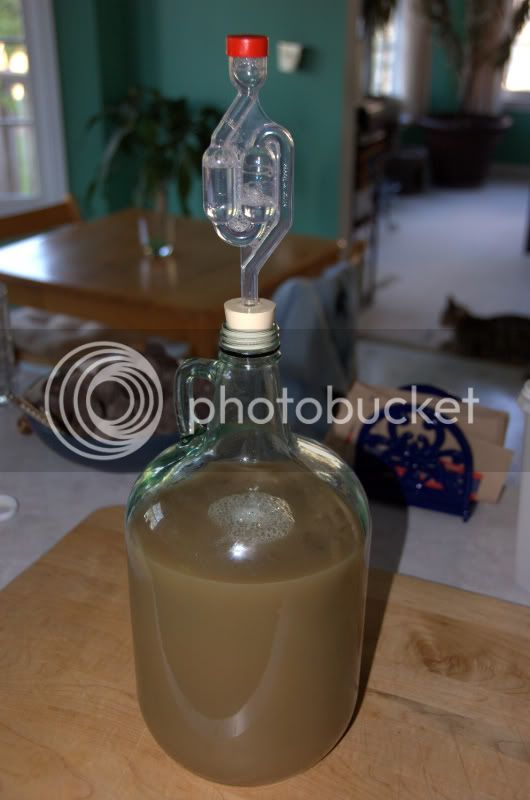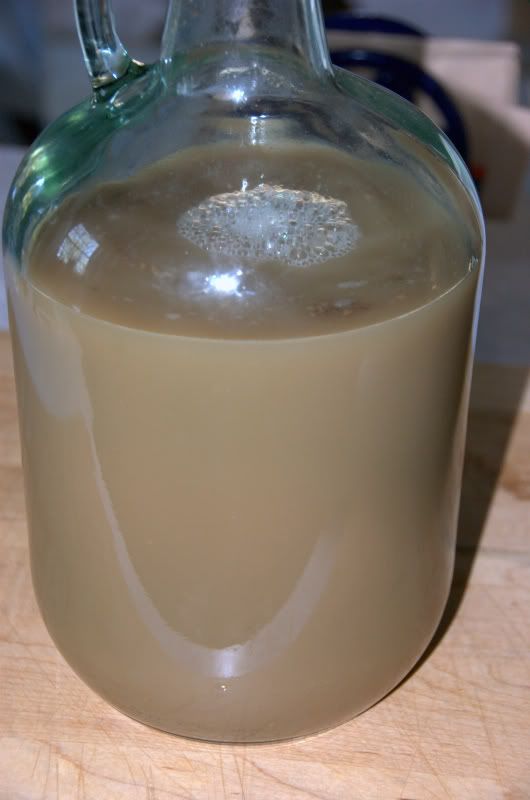Babylon
Well-Known Member
- Joined
- Oct 13, 2008
- Messages
- 139
- Reaction score
- 0
It's in the fermenter! It's a beautiful dirty, murky, mud-puddle brown. <---the beautiful part is sarcasm! I'm glad someone figured out along the way that boiling was good. Anyway, the yeast is pitched and it's on it's own now. Can't wait to try it. Although, if it smells nasty, I may need some liquid encouragement before the first sip. Regardless, it'll have been a good experiment, something I think we need more of in this community.


looks tasty to me. But then, I kinda like the idea of stuff in suspension, partly because I grew up with an orchard and the fresh cider that has stuff in suspension always tasted way better than when we let it settle out. Formative memories like that can have a lot of effect on someone's tastes.














![Craft A Brew - Safale S-04 Dry Yeast - Fermentis - English Ale Dry Yeast - For English and American Ales and Hard Apple Ciders - Ingredients for Home Brewing - Beer Making Supplies - [1 Pack]](https://m.media-amazon.com/images/I/41fVGNh6JfL._SL500_.jpg)












































